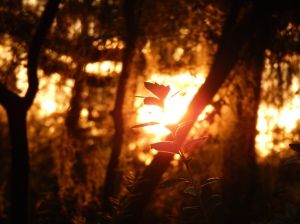I remember loving “Little Women” when I read it 15 or so years ago. I’m re-reading it (actually listening on Audible) now, and am taking it in with very different lenses than I had upon first reading. Certainly the case will be the same 15 years from now. Maybe it’s the time of year, or I’m just due for an especially pensive spell (‘especially’ because it truly doesn’t take much to get me to some sort of contemplation) but it’s making me think about life. I won’t bore you with a long post for I’m not a writer.
In a year full of joys and sorrows, community and loneliness, contentment and sadness, fulfillment and frustration, celebration and loss, and much grace, Alcott’s words catch my attention: “I am not afraid of storms, for I am learning how to sail my ship.”
Two things.
Life is definitely a journey, though we often hyper-fous on aspects of it — whether past, present, or future. Looking at it as a whole, or in the sum of its parts is helpful for me. Furthermore, in this journey we’re all on — of course in different places and times and with different styles of navigation — gratitude is key, and I’m thankful for many things. I’m thankful because I’m not in fact alone, I am loved (first by God but also by people in my life); I’ve uncovered a great aspect in my call (i.e. the thing I feel I’ve been made for – where I find contentment); and my cup overflows when it comes to basic needs. All of these make me responsible to help give that to others, especially those who lack in any or all of these; a responsibility that is also a joyous privilege. Also, because God’s grace abounds, we can always turn the ship around.
Second, “[Jesus} came so that [we} could have life—indeed, so that [we] could live life to the fullest” (John 10:10). No, I’m not a proponent of the prosperity gospel and I do not resemble Joel Osteen. I’m talking more of what Parker Palmer calls a hidden wholeness, and the fact that God is present, loving, comforting, consoling and transforming in the midst of a life that is quite messy — that Christ has come because God ultimately wants better for us, God’s beloved creation. This has led me to believe and be hopeful. This has been exemplified in my life in the fact that God’s dreams and desires for us are better than what we can dream. The coolest most fulfilling parts of my life so far were God-inspired. I’m not the biggest dreamer when it comes to me — and to believe and trust that God desires the best fills me with hope. Obviously, these dreams are not forced upon us, but to trust and obey them brings unspeakable peace.
I leave you with these words as we sail — roughly, smoothly, joyfully, or mournfully — into a new year:
“Look well to the growing edge. All around us worlds are dying and new worlds are being born; all around us life is dying and life is being born. The fruit ripens on the tree, the roots are silently at work in the darkness of the earth against a time when there shall be new leaves, fresh blossoms, green fruit. Such is the growing edge. It is the extra breath from the exhausted lung, the one more thing to try when all else has failed, the upward reach of life when weariness closes in upon all endeavor. This is the basis of hope in moments of despair, the incentive to carry on when times are out of joint and men and women have lost their reason, the source of confidence when worlds crash and dreams whiten into ash. Such is the growing edge incarnate. Look well to the growing edge.” —Howard Thurman, from The Growing Edge
-Esther
